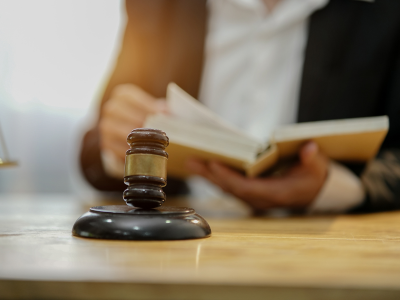
Article 32: Judicial Review Power of the Supreme Court of India
As we know the court is the supreme body in terms of protecting the laws. The Indian Constitution, designed to ensure justice and equality for all, enshrines fundamental rights as its core legal principles. Among these, Article 32 holds a central and vital role, often described as the "heart and soul" of the Constitution. This unique power enables the Court to act as the protector of fundamental rights, preserving the democratic fabric of the nation.
Judicial Review: A Constitutional Safeguard
Judicial review under Article 32 empowers the Supreme Court to scrutinize the validity of legislative and executive actions against the Constitution’s provisions. This power is essential for maintaining constitutional supremacy, ensuring no authority can undermine its principles. The framers of the Constitution envisioned a strong mechanism to prevent violations of fundamental rights, with judicial review serving as its cornerstone. Through judicial review, the Supreme Court assesses whether laws passed by the legislature or actions taken by the executive align with constitutional provisions. If they are found to be inconsistent, the Court can declare them unconstitutional, rendering them void. The constitution will be the law which will be followed first by everyone in the country.
Scope and Significance of Article 32
Article 32 grants individuals the right to directly approach the Supreme Court when their fundamental rights are violated. This provision is crucial in empowering citizens by bypassing procedural delays that could otherwise obstruct justice. The writs such as habeas corpus, mandamus, prohibition, quo warranto, and certiorari can be issued by the Supreme Court in order to protect the fundamental rights. This direct access to the Supreme Court underscores the priority given to fundamental rights in India’s constitutional framework. It also acts as a deterrent against arbitrary actions by the legislature and executive, ensuring their accountability and adherence to constitutional values.
Key Judicial Interpretations and Landmark Cases
Over time, the Supreme Court has expanded the scope of judicial review through several landmark rulings. In Kesavananda Bharati Sri katgalvaru v. State of Kerala (1973), the Court established the "basic structure doctrine," asserting that certain fundamental features of the Constitution cannot be amended, even by the legislature. This reinforced the judiciary's role as the Constitution’s guardian. In Maneka Gandhi v. Union of India (1978), the Court redefined personal liberty under Article 21, emphasizing procedural fairness and due process, thus strengthening the protective role of judicial review. More recently, cases such as Navtej Singh Johar v. Union of India (2018) and Indian Young Lawyers Association v. State of Kerala (2018) have demonstrated the transformative role of judicial review in safeguarding individual rights and challenging entrenched societal norms.
Checks and Balances: Ensuring Judicial Discipline
While Article 32 empowers the judiciary, it operates within a system of checks and balances to prevent misuse of power. The principle of separation of powers ensures that judicial review does not infringe upon the legislative and executive branches. Courts have emphasized self-restraint, exercising judicial review only in matters of constitutional significance. At the same time, the judiciary remains committed to upholding democratic principles. Judicial activism, when aligned with constitutional mandates, has advanced social justice and reform. However, excessive activism, sometimes regarded as judicial overreach, can create tensions with other branches of government. This is one of the procedures established by the law which ensure that no other organ of the government cross their limit set for working, and one of the power is given to every other organ so that they will maintain a balance of cross check on another organ so that no one crosses their area of working and the government will be able to function properly.
Conclusion
Article 32 reflects the Indian Constitution’s commitment to justice, liberty, and equality. By granting the Supreme Court the power of judicial review, it ensures that citizens' fundamental rights are not just theoretical promises but practical guarantees. This article empowers individuals and reinforces the democratic ethos of the nation, positioning the judiciary as a central pillar in maintaining constitutional integrity. As India continues to mature as a vibrant democracy, the role of judicial review under Article 32 remains crucial. It serves as a beacon of hope for the oppressed, a tool for accountability, and a protector of constitutional morality. Dr. B.R. Ambedkar said that if he was asked to change the name of any of the article he would not choose this article as it is the most important one and it is considered as the soul of our constitution,
Best Lawfirm in lucknow for Corporate Cases | Best Crimimal Lawyers Near me | Best Criminal Advocates Near me | Best Corporate Advocates Near Me | Best Criminal Lawyers in Lucknow High Court | Best Corporate Lawyers in Lucknow High Court | Best Lawfirm in Uttar Pradesh | Best Criminal Advocates in Uttar Pradesh | Best Advocates in Lucknow High Court | Best Lawyers in Lucknow High Court | Best Lawfirm in Lucknow High Court | Best Legal Advisor in Lucknow | Best Legal Consultant in Lucknow | Best lawfirm for legal Consultancy services in lucknow
B.R. Ambedkar, Constituent Assembly Debates, Vol. 7, at 1011 (Nov. 25, 1949). https://saslawchambers.com/contact.
Kesavananda Bharati v. State of Kerala, (1973) 4 SCC 225 (India).
Maneka Gandhi v. Union of India, AIR 1978 SC 597 (India).
Navtej Singh Johar v. Union of India, (2018) 10 SCC 1 (India). https://saslawchambers.com/services
Indian Young Lawyers Association v. State of Kerala, (2019) 11 SCC 1 (India).
Subhash C. Kashyap, Our Constitution: An Introduction to India’s Constitution and Constitutional Law, 124 (2009). https://saslawchambers.com/services.

